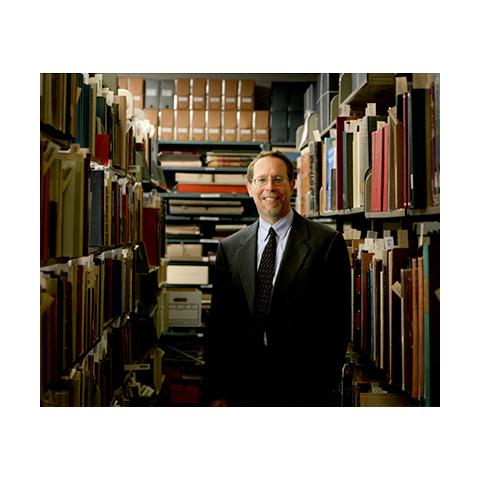University Library E-News

After every natural disaster or pandemic there must be a transitional time of returning to “normal life.” When the 1994 Northridge earthquake occurred, it took years for the campus to recover, and I see the COVID-19 pandemic as being similar in some ways to the devastation wrought by a major earthquake. The 1994 earthquake lasted less than a minute, but its effects were felt for years afterward. The COVID-19 pandemic has been with us for 18 months, but just like the earthquake, we will be experiencing “aftershocks” for the indefinite future.

The Oviatt Library has been engaged in productive partnerships for many years. Last fall we joined together with CSUN’s Division of Information Technology to create a special IT Help Desk in the new Learning Commons. We also opened up a space in the Library building for the Learning Resource Center (LRC) to facilitate campus tutoring services and to prepare for future collaborative initiatives between the Library and the LRC. We even partnered with the CSUN University Corporation to build a coffee house in the lobby of the Library, a highly successful cooperative venture t

One of my favorite television actresses, Marilu Henner, once said that “Like it or not, the world evolves, priorities change and so do you.” It’s a simple concept, but the truth is that many of us are fixed in cement once we write down a prioritized list of goals.
It’s not easy to be flexible with our goals. We may feel that others will criticize us for weakness or lack of focus. At the same time, we must take advantage of windows of opportunity and move our current priorities forward with intentionality and speed when an opening appears.

The Rev. Dr. Martin Luther King, Jr. once said that "all life is interrelated. We are all caught in an inescapable network of mutuality, tied into a single garment of destiny. Whatever affects one destiny, affects all indirectly.”
As Dr. King observed, there is a certain coherence to the world that seems to often stay hidden below the surface and then occasionally pops up like a spring daisy. Similarly, the stories in our Spring 2016 issue of the Oviatt Library eNews have a number of connective elements. These elements are surprising, inspiring, and thought-provoking.

It was philosopher-writer George Santayana who first said, “Those who cannot remember the past are condemned to repeat it.” Santayana, who was educated in the United States from the age of eight, was a Spanish immigrant but considered himself an American and went on to become a Professor of Philosophy at Harvard. One of his star students, W. E. B. Du Bois, was able to attend college in large part due to donations that were collected by the congregants of his church. Du Bois himself became a prominent American civil rights leader and helped co-found the National Association for the Advancement of Colored People (NAACP). These linked pieces of history, like the articles in this issue of the eNews, remind us that it is in coming together as a community to educate our students that we keep our democracy vibrant.

Creativity is a crucial part of our lives and our work. It benefits all of us individually and as a society. Very few would argue that creativity has no place on the university campus or almost anywhere else in the world. Indeed, scholarly literature has proven that being exposed to creative outlets and innovation opportunities generates student success. But demonstrating creativity in the real world is sometimes hard work.
I have belonged to many different communities throughout my life. Sometimes communities are geographical in nature, and with that lens in mind, I have lived in over twenty different neighborhoods. But just as often, communities are seen through a different lens, whether ethnic, religious, gender identity, or other categories. Sometimes communities are fluid, and people can pass in and out easily, but other times they have rigid boundaries with circumscribed membership requirements.
The Oviatt Library is in many ways its own community. This community includes employees (such as our 90 staff and faculty and our 140 student assistants); campus faculty and staff; local users and supporters; and of course, the 38,000 CSUN students who make excellent use of our resources and services.

Nelson Mandela, the great South African political leader and statesman once said: “Do not judge me by my success, judge me by how many times I fell down and got back up again.” And that is the essence of resilience: the ability to bounce back from adversity, not just once, but multiple times. Resilience is a core value for leaders at CSUN; an excerpt from the University’s Leadership Principles states that a leader at CSUN “perseveres even when faced with challenges or setbacks.” Perhaps we focus on it so much because it is in the DNA of our institution, going back to the Northridge earthquake of 1994.

The beloved British writer C.S. Lewis once said, “We must stop regarding unpleasant or unexpected things as interruptions of real life. The truth is that interruptions are real life.” Most of us wish that we could avoid negative things, like a pandemic, but the reality is that we often learn more from disappointments than from “smooth sailing.”

Maya Angelou, the great American poet and civil rights activist who passed away earlier this year, said that parents should teach “young people early on that in diversity there is beauty and there is strength.”
In this issue of the Oviatt Library eNews you will see that there is indeed beauty and strength among the individuals, young and old, who serve CSUN students through the resources, services, and facilities of the Oviatt Library.